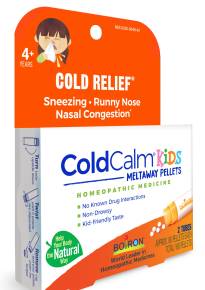Puppies and kittens are fun, but the longer our pets share our lives, the more we want them to stay active, comfortable, and healthy.
Pets Age at a Different Rate
According to the American Veterinary Medical Association (AVMA), cats and dogs are considered senior citizens by age 7. A 7-year-old cat resembles a 45- to 54-year-old human, while a 10-year-old dog compares to a person between the ages of 56 and 78. Small dogs often live longer and act younger while large breeds tend to show advancing age sooner.
To help prevent age-related health issues, the AVMA recommends physical exams for older pets twice a year so developing conditions can be addressed early.
Keep Your Pet Fit Through Diet and Exercise
Weight Management
Excess body weight, which is a serious health risk for older animals, affects one in five dogs and cats. Almost half of the dogs and cats diagnosed with arthritis and diabetes are overweight, as are dogs with high blood pressure or hypothyroidism.
Effective weight-loss strategies for pets include feeding more protein and fewer carbohydrates, avoiding high-fiber foods (they leave pets feeling hungry and may interfere with nutrient absorption), feeding the right fats (such as the omega-3 fatty acids EPA and DHA from fish oil), and reducing portion size.
Pain from Arthritis
Exercise helps, too, but arthritis, which is common in older pets, can interfere with fitness plans. Its symptoms include limping or favoring a leg; having difficulty sitting or standing; having stiff or sore joints; hesitating to jump, run, or climb stairs; gaining weight from inactivity; losing interest in walks or play; and behavioral changes, including irritability. Researchers blame chronic inflammation for age-related health problems like arthritis in pets just as in people, and they suggest that similar nutritional interventions may delay or reduce the development of symptoms in both pets and humans.
Among the most widely prescribed nutritional supplements for older pets are glucosamine and chondroitin sulfate and omega-3 fatty acids, all of which help relieve arthritis symptoms. Antioxidants such as vitamin E may also make a difference. Because over-the-counter and prescription drugs can have significant side effects for pets, many holistic veterinarians prefer herbal supplements such as boswellia, devil’s claw root, ginger, or turmeric, all of which have been shown to address the underlying causes of pain and discomfort. Most pet supply stores carry a variety of products labeled for pet use that contain these and other ingredients to help relieve joint pain.
Effective Enzymes for Pets
Digestive enzymes release micronutrients in food, improving their assimilation. Protease breaks down proteins, lipase digests fat, and amylase processes carbohydrates. Because heat processing destroys the enzymes that occur naturally in food, enzyme supplements can improve digestion in dogs and cats, especially those who eat a commercially prepared diet. Incomplete digestion can lead to bloating, diarrhea, gas, bad breath, body odor, lethargy or sluggishness, allergies, skin and coat problems, and a compromised immune system, all of which are common in older animals.
The benefits of digestive enzymes include saving money as animals receiving more nutrients may not need as much food; stool size decreases because less food is wasted through inefficient digestion; pets feel more satisfied and less hungry, so are less likely to overeat; and pets become healthier overall because they receive more nutrients.
Beneficial Bacteria for Dogs and Cats
During the past decade, much research involving dogs, cats, and humans has focused on the microbiome, an umbrella term used to describe communities of bacteria, viruses, fungi, and other microbes in the body. Because a healthy microbiome destroys harmful pathogens, including disease-causing viruses, fungi, bacteria, and parasites, it is the immune system’s first line of defense. A healthy microbiome improves digestion, creates some nutrients including vitamins and short-chain fatty acids, and helps regulate the body’s endocrine system.
Dysbiosis, a term that describes a weakened or depleted microbiome, can lead to nutritional deficiencies and leaky gut syndrome, which allows partially digested food particles to enter the bloodstream, resulting in food allergies, skin and coat problems, digestive disorders, joint pain, and illnesses such as autoimmune disorders, irritable bowel disease, and diabetes.
Researchers blame antibiotics, processed foods, genetically modified foods, chemicals such as pesticides and preservatives, prescription drugs, and even the stresses of modern life for dysbiosis and its complications.
Simple ways to improve the microbiome and help reverse dysbiosis include feeding your pet fresh, whole foods, avoiding antibiotics and prescription drugs as much as possible, and supplementing the diet with probiotics and prebiotics. Probiotics are beneficial bacteria that help keep the digestive tract healthy by controlling the growth of harmful bacteria, while prebiotics provide food for the beneficial bacteria. Products labeled for pet use containing one or both are sold as digestive aids, skin and coat conditioners, immune system support, and senior-care supplements.
Friends for Life
You are what you eat, the old saying goes, and what our best friends eat helps determine not only how long they will live but also how well. Nutritional supplements that improve their quality of life are worthwhile investments in our older pets’ health and happiness.





